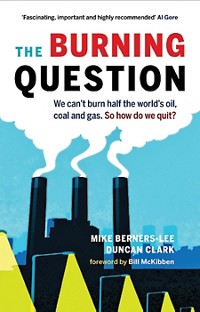Advertisement
Grab your lab coat. Let's get started
Welcome!
Welcome!
Create an account below to get 6 C&EN articles per month, receive newsletters and more - all free.
It seems this is your first time logging in online. Please enter the following information to continue.
As an ACS member you automatically get access to this site. All we need is few more details to create your reading experience.
Not you? Sign in with a different account.
Not you? Sign in with a different account.
ERROR 1
ERROR 1
ERROR 2
ERROR 2
ERROR 2
ERROR 2
ERROR 2
Password and Confirm password must match.
If you have an ACS member number, please enter it here so we can link this account to your membership. (optional)
ERROR 2
ACS values your privacy. By submitting your information, you are gaining access to C&EN and subscribing to our weekly newsletter. We use the information you provide to make your reading experience better, and we will never sell your data to third party members.
Environment
The Energy Commons
by Rudy M. Baum, Editor-in-chief
November 13, 2006
| A version of this story appeared in
Volume 84, Issue 46
Advisory Board
Magid Abou-Gharbia, Kim Baldridge, Lukas Braunschweiler, Joseph C. Breunig, Gary Calabrese, E. J. Corey, F. Fleming Crim, Marijn E. Dekkers, Michael P. Doyle, Robin L. Garrell, Rudolf Hanko, L. Louis Hegedus, Nancy B. Jackson, Harry Kroto, Sunil Kumar, Robert L. Lichter, Charles M. Lieber, Joseph A. Loo, Eli Pearce, Peter Pollak, Marquita M. Qualls, Paul J. Reider, Sara J. Risch, Gregory H. Robinson, Alan Shaw, Kevan M. Shokat, Rakesh (Ricky) S. Sikand, Wilhelm Stahl, Joel Tickner, Guy Villax, Frank Wicks
C &EN's Advisory Board met during the first week of November. This distinguished group of leaders from across the chemical enterprise meets annually to advise C&EN's staff on trends in the chemical enterprise that we should be following and on how well we are accomplishing C&EN's mission.
One element of each year's meeting is a plenary session on a broad topic of interest to C&EN's readers. This year, our focus was on energy. The plenary session is a two-hour, wide-ranging discussion among the advisory board members, guided by a series of questions posed by the C&EN staff.
The meetings are "off the record" to encourage board members to be open and candid in their remarks, so I am not at liberty to cite specific comments made during the session. However, a couple of themes emerged that I think are important.
One was a consensus, as far as I could tell across all members of the board, that government must play a central role in directing R&D into alternative energy sources, in commercializing the results of such R&D, and in using tax and regulatory incentives to encourage adoption of alternative energy sources and discourage use of fossil fuels. What's surprising to me about this consensus is that, historically, some advisory board members from the chemical industry have been leery of government involvement in these sorts of activities.
A thought that occurred to me during the plenary session is that many of the challenges we face regarding energy relate to "the tragedy of the commons," a term coined by Garrett Hardin, a University of California, Santa Barbara, biology professor, in a 1968 paper in Science (1968, 162, 1243; you can access the paper at the Garrett Hardin Society's website, www.garretthardinsociety.org). Hardin argued that rational individuals will use a common resource in what is, collectively, an irrational and destructive way. "Ruin is the destination toward which all men rush, each pursuing his own best interest in a society that believes in the freedom of the commons," Hardin wrote. "Freedom in a commons brings ruin to all." The only recourse, Hardin wrote, is "enclosure" of the commons and regulation of its use.
The straightforward component of the argument that the energy challenge is an example of the tragedy of the commons is use of Earth's atmosphere and oceans as a dump for the vast quantities of CO2 generated from burning fossil fuels. Global climate change and acidification of ocean water are directly resulting from our inability or unwillingness to regulate these two vast commons.
Hardin recognized the atmosphere as a commons in his original paper. In a later essay I stumbled across on the Library of Economics & Liberty website (www.econ lib.org), he wrote: "Even when the shortcomings of the commons are understood, areas remain in which reform is difficult. No one owns the earth's atmosphere. Therefore, it is treated as a common dump into which everyone may discharge wastes. Among the unwanted consequences of this behavior are acid rain, the greenhouse effect, and the erosion of the earth's protective ozone layer."
I mentioned the commons during the advisory board meeting, and board members concurred that it was an element of the problem. A board member raised another issue: Burning fossil fuels, especially petroleum, is not a smart use of this precious feedstock from which so much of our modern, technological society is constructed.
Thinking about it later, I realized that this observation is another, somewhat subtler, aspect of the commons problem. Humans treat petroleum as a commons, a resource that anyone anywhere may extract and use in any fashion, even a significantly less than optimal one like burning it.
Fossil fuels, the atmosphere, and the oceans are all components of an "energy commons." As long as we refuse to restrict the use of this commons, we will continue to degrade its components to our long-term detriment. The only viable approach to protecting the energy commons is negotiation of worldwide, binding treaties affecting energy use.
Thanks for reading.





Join the conversation
Contact the reporter
Submit a Letter to the Editor for publication
Engage with us on Twitter